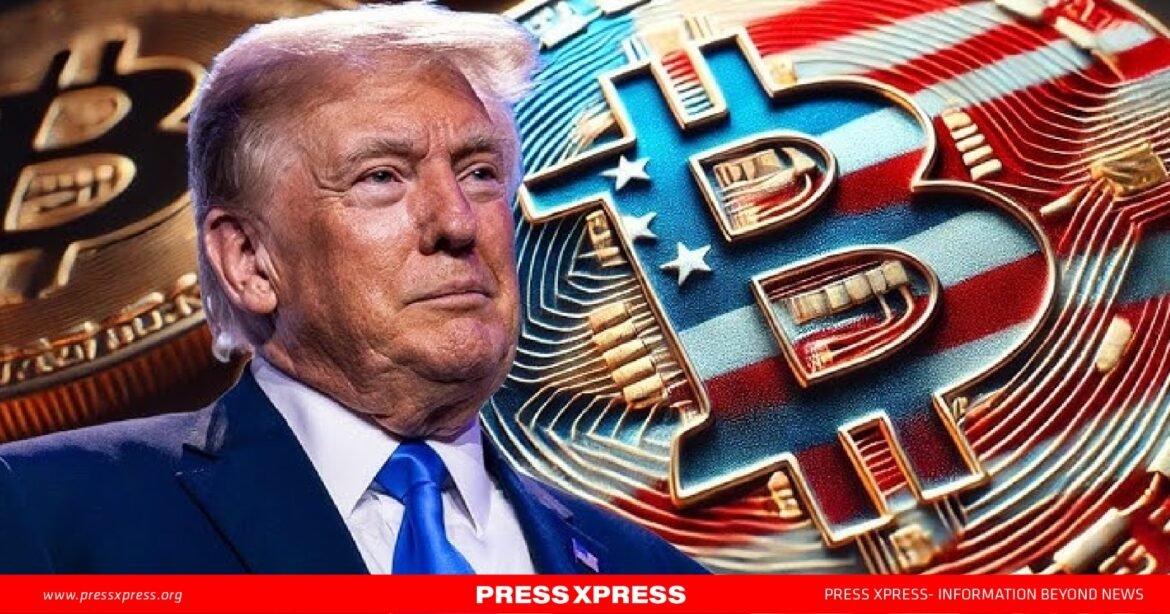The cryptocurrency world has taken an unexpected turn. Bitcoin’s value reached unprecedented highs, crossing $77,000 following Donald Trump’s reelection, a historic leap fueled by his supportive stance on crypto.

For an industry born in rebellion against traditional finance, Bitcoin’s rise through political means presents a paradox. Once synonymous with autonomy and anti-establishment ideals, the crypto community has embraced corporate lobbying, viewing Washington as the new battleground for control over its future. As money poured into pro-Trump political action committees (PACs) and Bitcoin-themed events cropped up on election night, it became clear that crypto’s grassroots origins are increasingly overshadowed by calculated political strategy.
Trump’s rhetoric has evolved alongside the crypto industry’s shift from fringe to mainstream. His promise to make the United States a crypto hub, coupled with plans to dismantle regulatory barriers, has encouraged substantial investment and political alignment. BlackRock and Fidelity saw record inflows into their Bitcoin ETFs in the days following Trump’s victory, and Fairshake, a crypto-funded PAC, raised over $200 million to sway congressional races, successfully supporting pro-crypto candidates.
The shift highlights a new era for crypto, one marked by influence and proximity to power rather than isolation from it. But for an industry that has always championed itself as decentralized and ungoverned, this pivot raises critical questions about its future.
Trump’s Crypto Conversion: Strategy or Symbiosis?
Donald Trump’s stance on cryptocurrency has shifted dramatically, making Bitcoin a centerpiece of his economic strategy. Once dismissive, Trump now frames Bitcoin as a tool of financial sovereignty, pledging to create a “strategic Bitcoin reserve” and relax regulatory restrictions that his administration previously scrutinized. This pivot is more than a policy shift—it represents a strategic alignment with the crypto industry, which invested heavily in Trump’s 2024 reelection campaign. High-profile executives, including Coinbase’s Brian Armstrong and the Winklevoss twins, funneled millions into pro-Bitcoin political action, shaping a landscape where crypto is no longer seen as a shadow industry but as an accepted part of U.S. finance.
Trump’s promises extend beyond campaign rhetoric.
His proposals to ease Bitcoin regulations and potentially replace SEC Chair Gary Gensler with a crypto-friendly leader align with the goals of industry giants who see government as a partner rather than an adversary. Crypto leaders view Trump’s administration as a pathway to establish favorable regulatory frameworks that could legitimize and embed digital assets within the U.S. economy. This developing relationship demonstrates a symbiosis, where political strategy and industry ambition fuel each other, reshaping how America engages with digital currencies.
Crypto’s Lobbying Strategy Pays Off
The 2024 election cycle marked a turning point, with over $200 million spent by the crypto sector to influence races nationwide. Fairshake PAC, a crypto-backed political action committee, directed significant funds to pro-crypto candidates, with nearly 85% of them securing victories. This success included Ohio’s Bernie Moreno, who defeated an anti-crypto incumbent, solidifying the industry’s ability to shape policy through political financing.
This lobbying strategy aligns crypto with traditional industries like oil and pharmaceuticals, where campaign contributions translate to legislative influence. For a sector once driven by ideals of decentralization, the shift toward political involvement signifies a readiness to embrace the “pay-to-play” model of American politics. However, critics worry that loosening restrictions on digital assets could undermine consumer protection, especially as the industry shifts from its anti-establishment roots to a more corporate-compliant stance.
The Political Ties that Bind Bitcoin
Trump’s reelection and his crypto-friendly platform spurred a surge in Bitcoin prices, with institutions like BlackRock and Fidelity investing over $1 billion in Bitcoin ETFs shortly after the election. This enthusiasm reflects the growing dependency of cryptocurrency markets on political support. However, this dependency carries risks. Should future administrations reverse Trump’s policies, Bitcoin could face market disruptions, potentially impacting retail investors who see Bitcoin as a decentralized alternative to traditional currencies.
Trump’s strategic Bitcoin reserve plan could further popularize digital assets but challenges the currency’s core principle of independence from government influence. For Bitcoin investors, this politicization introduces both opportunities and unpredictability, as the currency’s success becomes increasingly tied to political decisions.
A GOP-Led Congress and Crypto’s Path Forward
With Republicans taking control of Congress, the crypto industry expects regulatory relief. Trump’s influence raises hopes for a revised SEC approach, with potential leaders more favorable to digital assets. While relaxed regulations could boost crypto’s mainstream adoption, they also heighten the need for consumer protections in this volatile market.
As the lines between digital autonomy and corporate power blur, crypto’s future in a politicized landscape remains uncertain. Trump’s reelection has marked a pivotal moment for Bitcoin, transforming it from a decentralized disruptor to an established entity in American politics. The question now is whether Bitcoin can maintain its founding ideals or if it will become another industry shaped by political favors and regulatory power.


